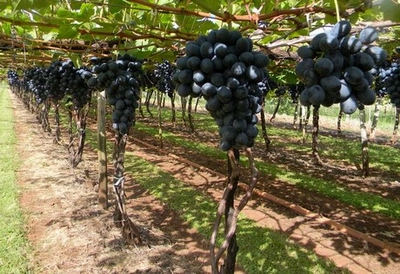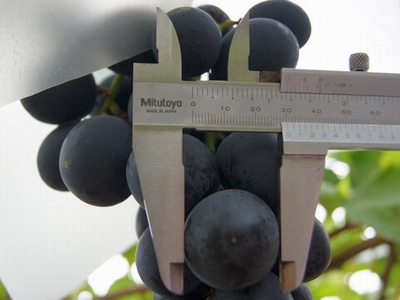The Brazilian Agricultural Research Corporation (Embrapa) introduced the new range of black table grapes with seeds BRS Nubia. "Among its main attributes, the new variety has a uniformity in colour, requires less work when being cultivated, and is suitable for hot climates (subtropical or tropical moist, semi-arid)," says Embrapa's Grape and Wine researcher Juan Dimas Garcia Maia, one of the coordinators of Embrapa's Grape Genetic Improvement Program.

Núbia BRS is an important evolution in the domestic production of black table grapes with seeds. According to Dimas, so far, the only crop of this type produced on a larger scale in the country was "Brazil" a spontaneous genetic mutation from the Benitaka variety. However, in Brazil, it is a variety that has little colour expression when its ripening coincides with periods of high temperatures and high production at which point its colour is at a midpoint between the black and red.
Apart from which, under these circumstances, it is a crop that requires a great deal of labour to manage its racemes.

Researcher Patricia Ritschel, Coordinator of the Grape Genetic Improvement program, said that the large size of the new crop's gores, measuring 24 mm to 34 mm, is obtained without the use of growth regulators such as gibberellins. That means that the Nubia BRS's gores opulence aligns with the prospect of a more sustainable production.
The new variety stands out for the amount of health beneficial substances it has in its shortest cycle, thus saving money in the application of fungicides and postharvest conservation.
Nubia BRS was tested in the validation areas of Jales (Northwest of São Paulo), Petrolina (PE, in the Valle do Submédio San Francisco), Marialva (Northern Paraná) and Jaíba (North of Minas Gerais), in farms of producers and affiliate companies. It was recommended for all these regions because of its good performance. This is the result of a cross between the Michele Palieri and Arkansas 2095 varieties that was carried out in 2000 in Bento Gonçalves, Brazil.





